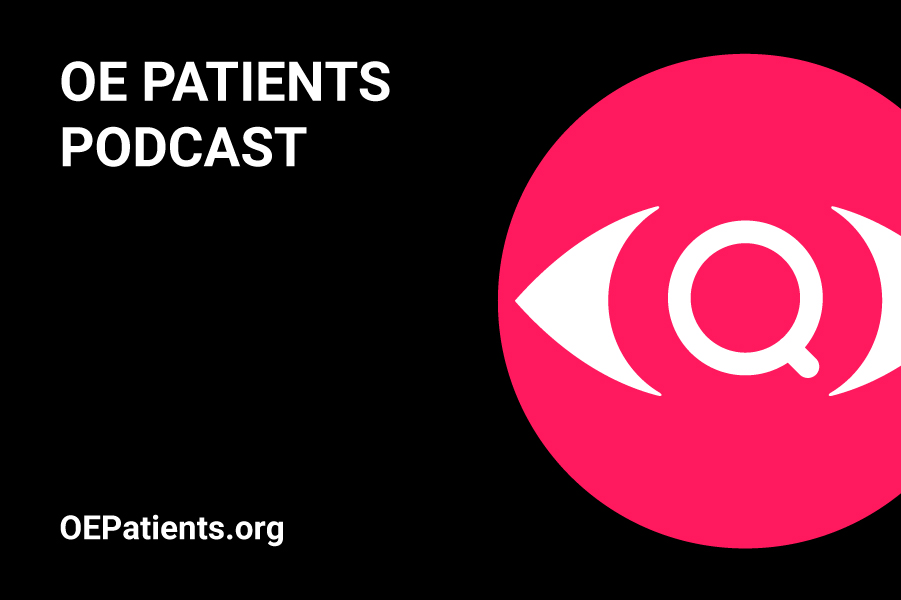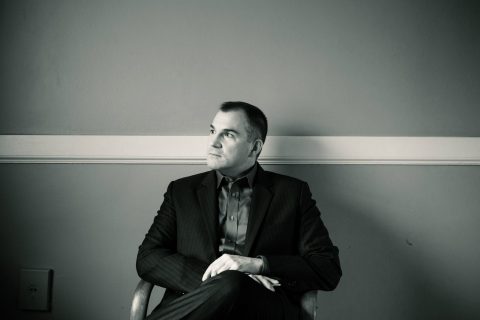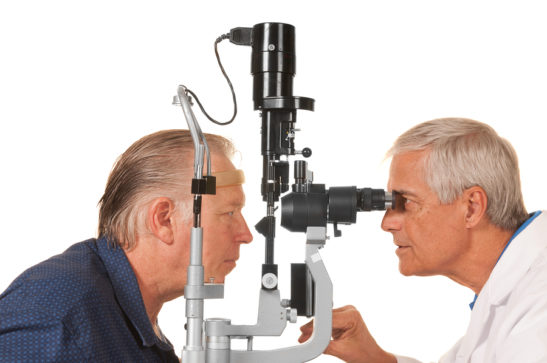Audiobooks are an excellent alternative when vision loss takes our ability to enjoy print. In this episode, Dorrie Rush addresses questions and feedback from part 1 & 2.
Full Playlist:
Podcasts, interviews and profiles from experience both personal and professional.

Audiobooks are an excellent alternative when vision loss takes our ability to enjoy print. In this episode, Dorrie Rush addresses questions and feedback from part 1 & 2.
Full Playlist:

Audiobooks are an excellent alternative when vision loss takes our ability to enjoy print. Learn all about the best options for accessing audiobooks in our conversation with guest, audiobook reviewer and book club moderator, Michelle Ritholz.
Show notes:
Full Playlist:

There is no denying, the COVID19 pandemic forced us to ask ourselves some important questions. Have I prioritized my health and well-being? Do I have enough saved for an emergency? Do I want the ventilator or not? Who gets my property should I die? Suddenly we faced the cold realization, there is no guarantee of tomorrow. As social activities deferred to a later date, the idea of creating a will began moving to the top of many a to-do list.
When preparing a legal document, it’s always wise to consult a professional. We talked with colleague and friend, Mary Fern Breheney, Esq. Here’s what she wants everyone to know.
If you care about how your property and financial assets are distributed, a will is the written legal document that specifies and carries out your wishes. Without this document, your property will be disposed of according to the inheritance laws governed by your state of residence. That may ultimately be okay with you, but do educate yourself before relinquishing control.
When you die, your Will is submitted to the Court for Probate. This gives your Executor the authority to locate assets and distribute your estate according to the terms of your will.
Mary Breheney also advises, “Be sure you know the difference between probate and non-probate.” For example, assets with named beneficiaries supersede the directives of a will.

You need to know how your real estate is owned, how your assets are titled (joint or individually owned), and whether you have named beneficiaries on financial accounts and insurance policies. To prepare for estate planning, gather documentation for all of your assets including: real estate, business interests, retirement accounts, bank accounts, investments, life insurance, annuities, cars, boats, jewelry, art and furniture.
Decide how your property and financial assets should be distributed and understand what assets the will controls. Your attorney will ask if beneficiaries and loved ones have special needs or spending problems. A Trusts & Estates attorney will counsel clients on the pros and cons of outright inheritances or including Testamentary Trusts in your will.
Mary noted, “A will allows you to appoint someone you trust to manage the process, as executor, trustee or guardian.” She recommends thoughtfully considering your selection. It is equally important to name back-up or alternate executors, in case the first choice is unable or unwilling to take on the responsibilities of the job. The role of executor is, more often than not, a time consuming, detail-oriented position. Discuss the possible challenges with your chosen executors and consider adding an estate professional to assist with these duties.
Let your executor know where exactly your original executed will is to be found. Revisit the document every few years and revise if necessary. Keeping the document current ensures your wishes are carried out.
Legacy gifts are a meaningful source of support for nonprofit organizations. Mary Breheney says that many clients, even those of modest means, consider including meaningful philanthropic gifts to reputable organizations in their estate plans. There are a number of ways to do this and it’s always good to first consult with your attorney.
The pandemic brought a sense of urgency, not only, to the need for a written will, but also to the designation of an agent in a healthcare proxy. Take this opportunity to create this document which authorizes a person to make healthcare decisions when you are unable. And naturally, let that person know how to carry out your wishes.
Although there are many ways to create legal documents online, doing that without an experienced attorney is risky. You might save some cash up front, but your heirs could lose big bucks to an error. Get a personal reference for an estate planning attorney, or do some on-line looking to complete the process of documenting your final wishes with confidence. It will give you back a sense of control.

Audiobooks are an excellent alternative when vision loss takes our ability to enjoy print. Learn all about the best options for accessing audiobooks in our conversation with guest, audiobook reviewer and book club moderator, Michelle Ritholz.
Show notes:
Full Playlist:

Listen to our insightful conversation with internationally recognized retina specialist, Allen. C. Ho, MD on the risks of deferring eye exams, the implementation of safety measures and how the lessons of the pandemic can improve options of convenience for patients longterm.
Full Playlist:

Hunkered down at home for a few days? Doing your level best to avoid the virus? It’s the perfect time to get in touch and catch up on the OE Patients Podcast. Wash hands thoroughly with soap and water, take an alcohol wipe to your phone or tablet, and press play. Also available on Apple Podcasts and Spotify.
Full playlist:

In this episode, restaurateur Ben Benson shares his experience building a successful business, all the while dealing with progressive vision loss. He takes us from the start of TGI Fridays, to Smith & Wollensky and Ben Benson’s Steakhouse. He speaks of the many adjustments he made throughout, and how his favorite technologies — iPhone, Siri and Alexa — help him compensate today.
Full Playlist:

Too many patients with low vision believe “nothing can be done” to improve their quality of life. In this episode Dorrie Rush and Jaydan Mitchell are busting that myth with a review of just the basics everyone needs to know about living better with vision loss.
Full Playlist:

Millions are affected by vision loss that cannot be corrected, yet it is quite rare that someone with a high profile is willing to openly share their experience. In 1998, Henry Grunwald, the former managing editor of Time magazine and editor and chief of Time, Inc., published a memoir describing the ways age-related macular disease imposed on life as he knew it. The title, “Twilight: Losing Sight, Gaining Insight,” gave us the first clue, that Henry was, despite the challenges, working things out.
Two decades later, in a somewhat similar fashion, Frank Bruni, New York Times journalist and author, is sharing his personal experience losing sight suddenly to a stroke of the eye. From his first insightful column on the subject, titled “Am I Going Blind?,” we learn that Frank, like Henry, is acquiring a new outlook. Frank Bruni speaks to us in a way that is compelling, whether you know vision loss intimately or not. He is also writing a book about the life-changing experience, which will be published in 2022.
A stroke of the eye is referred to by the acronym “NAION” for non-arteritic anterior ischemic optic neuropathy which refers to loss of blood flow to the optic nerve (the connection between the eye and the brain). This condition typically causes sudden vision loss in one eye, without any pain. There is a 20% chance it will happen in the other eye, which you hope and pray is not the case. There is currently no treatment to reverse the loss or restore the sight.
It has been two years since Frank woke up one Saturday morning in October and discovered his vision had changed. His good eye compensates for the eye that is impaired, but not completely. Some might think it quite reasonable for a writer facing vision loss to give up on writing entirely, but that would be in many cases a serious misunderstanding. The gifts we are given rise above vision loss, as a rule. This is the lesson Grunwald and Bruni teach. Frank explores how visually impaired and blind writers rise to the occasion in his column titled “Writing With Your Eyes Closed,” and you don’t have to be a writer to get the point.
Frank has been a voice at The New York Times for over 25 years, talking politics, food, religion and now he’s added vision to the mix. His recent podcast interview for Hadley Presents with Ricky Enger, brought us more information about his process of adjusting. Nearly two years into his experience, Frank has arrived at some powerful conclusions that we can all benefit from.

He now understands “how crucial perspective is.” By looking around you may come to realize your own challenges are a “pittance compared to what most people deal with.” He focuses on the many ways he is “lucky.”
He decides to prepare, just in case, by getting used to listening to audiobooks. This is not always an easy or quick adjustment. Frank rediscovers why he loves visual reading and switches his strategy back to reading print for as long as he possibly can.
The speed of his writing has slowed a bit from what was a very fast pace, and he must be diligent with the correction of typos, but he now understands writing is a gift that is actually not dependent on good eye sight. He learned touch typing in high school and that is a very important skill to have, no need to look at the keys.
He has a great appreciation for the accessibility in today’s technology and gives a shout out to Apple for the accessibility features that cover the spectrum of vision loss. He utilizes the changes to font sizes, light and brightness, remarking that 20 years ago this would not have been possible.
Frank is surprised and dismayed by the lack of information or guidance he was offered by doctors about dealing with the inherent psychological and emotional impact of losing sight. What he did hear from the doctors was, “So sorry, this is a rough blow, nothing we can do.” He considers the omission a dereliction of duty, and is concerned for the patients who don’t have the ability or resources to figure out what to do next.
Listen to the Hadley Presents podcast:
NYT Columnist Frank Bruni on Vision Loss and Life in Perspective
*Featured image source: Seattle Arts & Lectures*

Our friend and colleague, Jerry Rosenberg, passed away on November 5, 2019, his 89th birthday. He was a loving husband, father, grand and great-grandfather. He lived life with purpose, not allowing progressive vision and hearing loss or age, to thwart his mission to help others. Jerry chaired a support group, affiliated with the Association for Macular Diseases, for more than two decades. He loved to write and never stopped, his second book was published just weeks ago. He will be missed, but not forgotten.
Jerry’s distinct voice will continue to be heard through his articles published on the pages of OE Patients. We are honored to share a bit of his legacy with this memorial tribute.

The vision loss of a family member or friend is not always easily understood by those around us. In this article, Jerry offers an honest assessment with a healthy dose of humor.

After years of advice not to remove cataracts, Jerry gets the go ahead and reports an excellent outcome.

In this post, Jerry reminds us that age should not be a barrier to leaning something new, particularly for those of us with vision loss, there is much to gain in adopting and adapting.

With the help of multiple accessible technologies, the writer in Jerry Rosenberg, does not skip a beat.

Jerry reminds us, sometimes when least expected, a new doctor will give you a whole new perspective.

Because Jerry was both legally blind and hearing impaired he was able to benefit from the ICanConnect program, receiving computer technologies and training that enabled him to communicate digitally and continue writing.
Jerry Rosenberg is the author of two books, The Speechwriter and My Granddaughter “The Junkie” – available on Amazon.

We’re talking with Douglas Walker from Hadley about his video tutorials for Apple, Android and Microsoft, and the Hadley podcasts and discussion groups, that are all about empowering people with vision loss to thrive.
Full Playlist:

Falling is unpleasant at any age and increasingly dangerous with age. Alice Massa, Occupational Therapist, shares her professional advice about elevating awareness, improving balance, and lowering risk factors to prevent the fall before it happens.
Full Playlist: